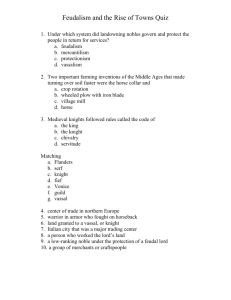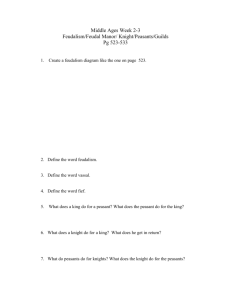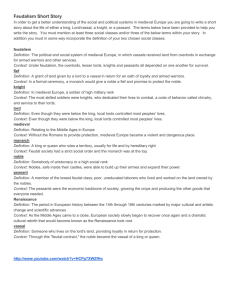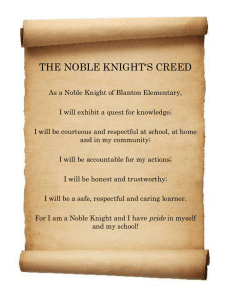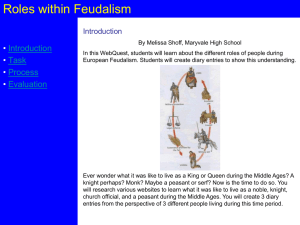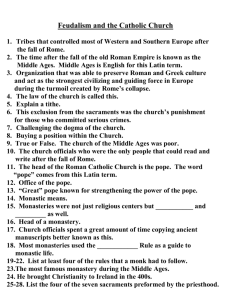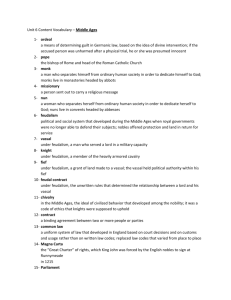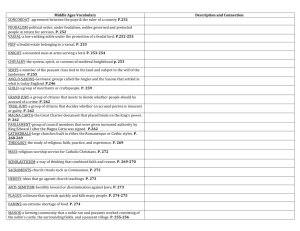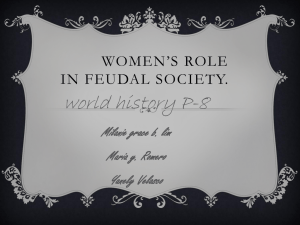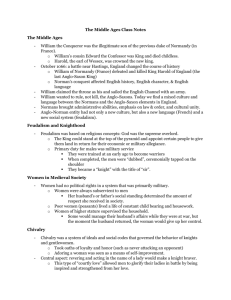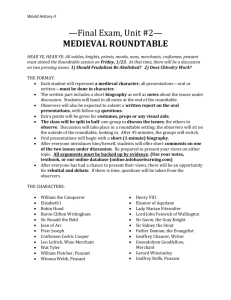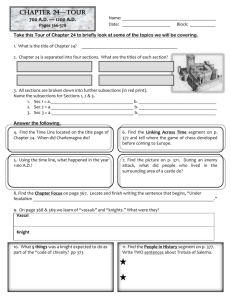Middle Ages Vocab
advertisement
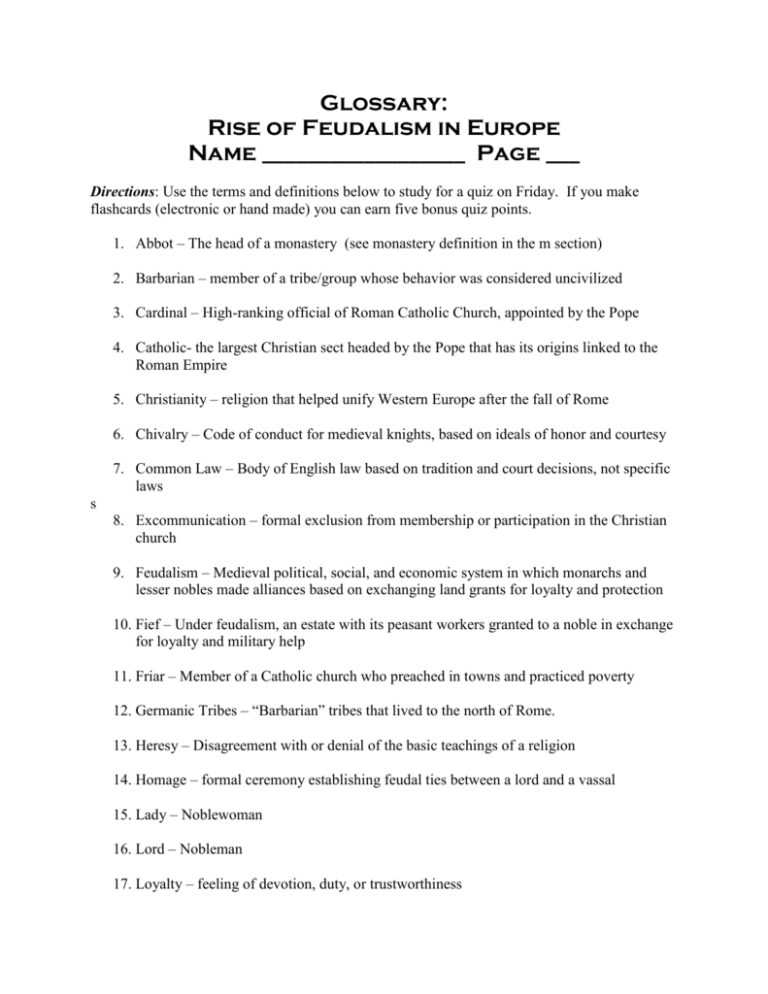
Glossary: Rise of Feudalism in Europe Name __________________ Page ___ Directions: Use the terms and definitions below to study for a quiz on Friday. If you make flashcards (electronic or hand made) you can earn five bonus quiz points. 1. Abbot – The head of a monastery (see monastery definition in the m section) 2. Barbarian – member of a tribe/group whose behavior was considered uncivilized 3. Cardinal – High-ranking official of Roman Catholic Church, appointed by the Pope 4. Catholic- the largest Christian sect headed by the Pope that has its origins linked to the Roman Empire 5. Christianity – religion that helped unify Western Europe after the fall of Rome 6. Chivalry – Code of conduct for medieval knights, based on ideals of honor and courtesy 7. Common Law – Body of English law based on tradition and court decisions, not specific laws s 8. Excommunication – formal exclusion from membership or participation in the Christian church 9. Feudalism – Medieval political, social, and economic system in which monarchs and lesser nobles made alliances based on exchanging land grants for loyalty and protection 10. Fief – Under feudalism, an estate with its peasant workers granted to a noble in exchange for loyalty and military help 11. Friar – Member of a Catholic church who preached in towns and practiced poverty 12. Germanic Tribes – “Barbarian” tribes that lived to the north of Rome. 13. Heresy – Disagreement with or denial of the basic teachings of a religion 14. Homage – formal ceremony establishing feudal ties between a lord and a vassal 15. Lady – Noblewoman 16. Lord – Nobleman 17. Loyalty – feeling of devotion, duty, or trustworthiness 18. Knight – mounted soldier who was sworn to fight for their lord in exchange for land and support and expected to follow the code of chivalry 19. Manorialism – Medieval economic system linking nobles and the peasants on their land 20. Manor - Main part of a noble’s fief including fields, a main house, orchards, village, church and more. 21. Monastery - A community of monks (men) living together under religious vows. 22. Noble – person of high rank by birth or title 23. Page – boy from 7-14 years old who is in the 1st stage of training to become a knight 24. Pagan - A follower of a polytheistic religion. 25. Peasant – supported the feudal structure by farming or working as a skilled craftsman (carpenter, blacksmith, etc.) and was free to move away from the manor where they rented or owned land 26. Sacrament – One of the established formal rituals of the Roman Catholic Church, such as baptism, Holy Communion, or matrimony 27. Serf – A peasant laborer legally bounded to the lands of a noble; couldn’t leave the land. 28. Squire – boy from 15-21 years old who is in the 2nd stage of training to become a knight 29. Jousting – Medieval sport in which knights competed to show their fighting skills 30. Vassal – In feudalism, a noble, knight or peasant who held land from and served a higherranking lord 31. Viking – barbarians from Scandinavia who terrorized Europe during the 9th and 10th centuries (feudalism developed as an answer to their threat)
